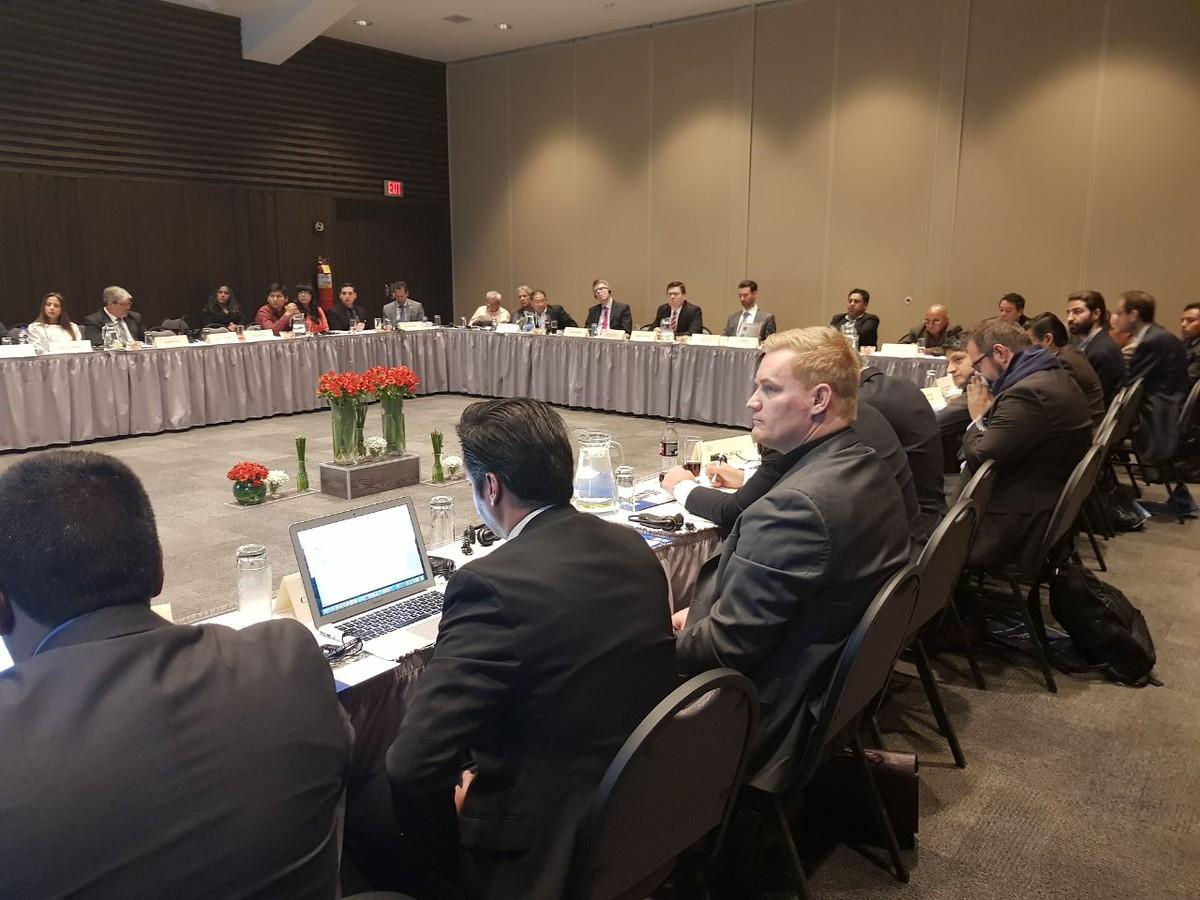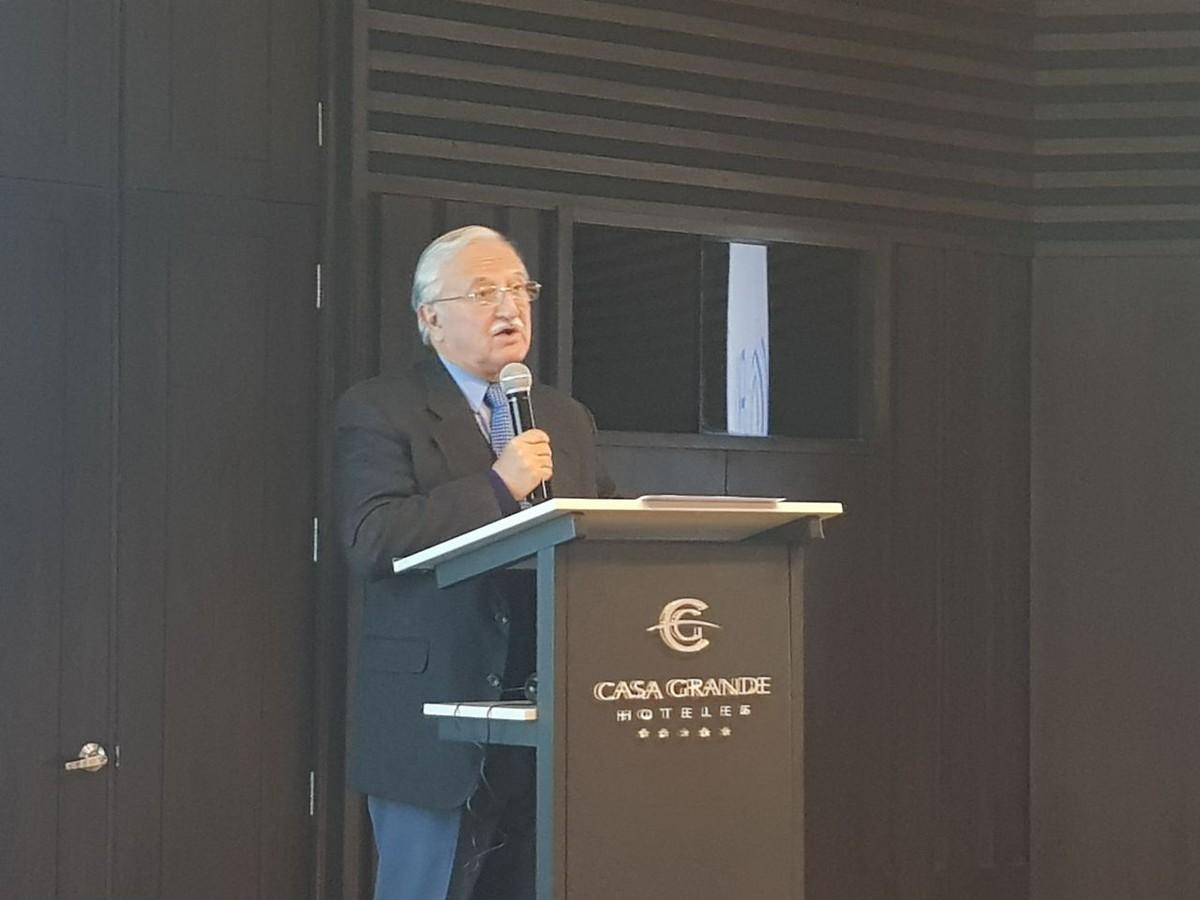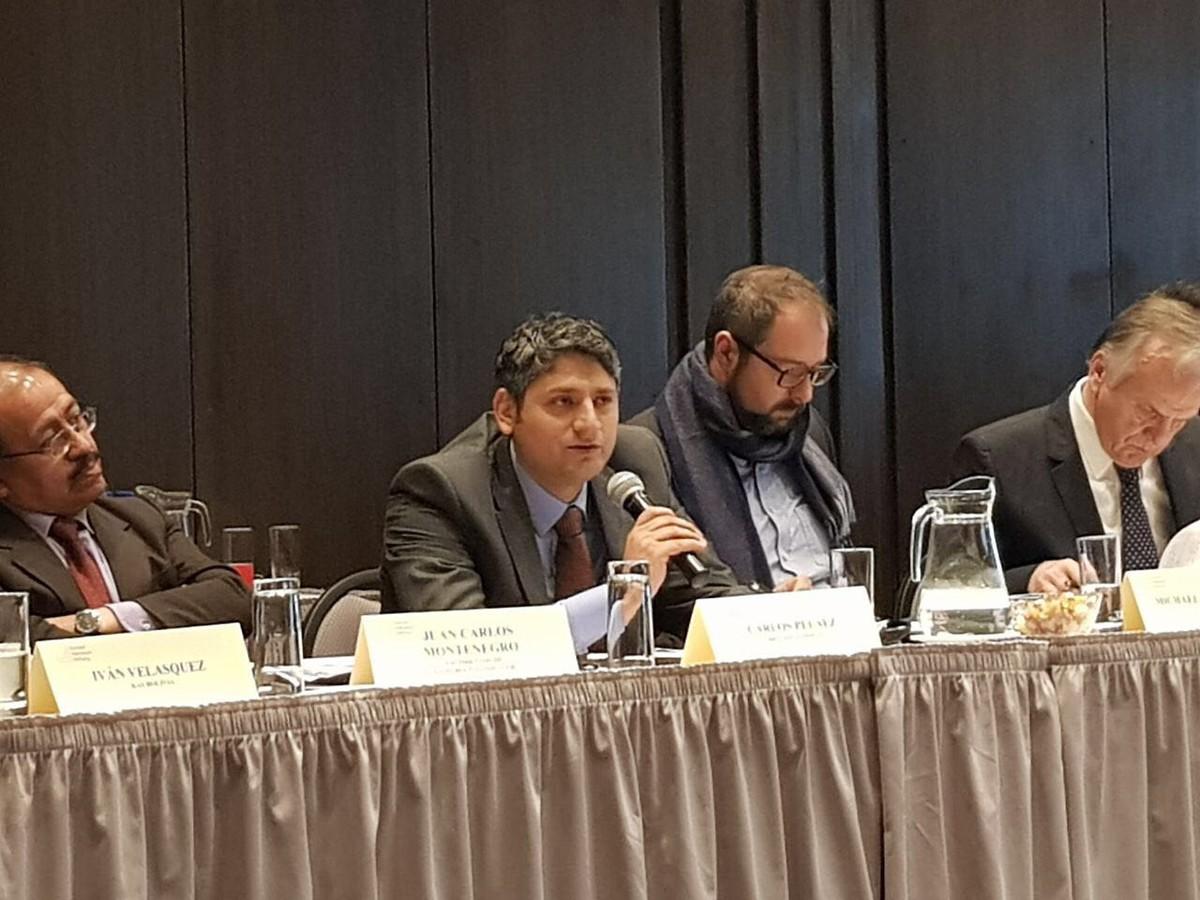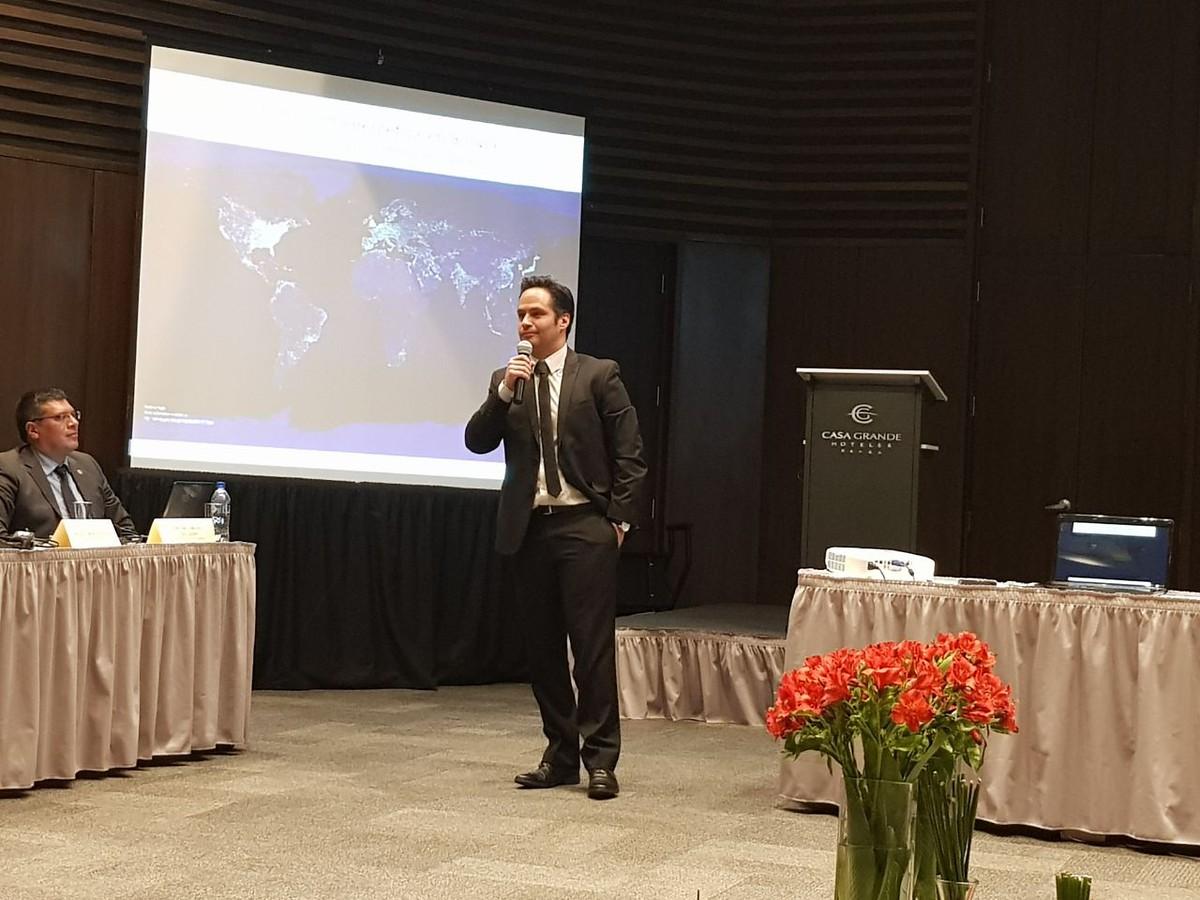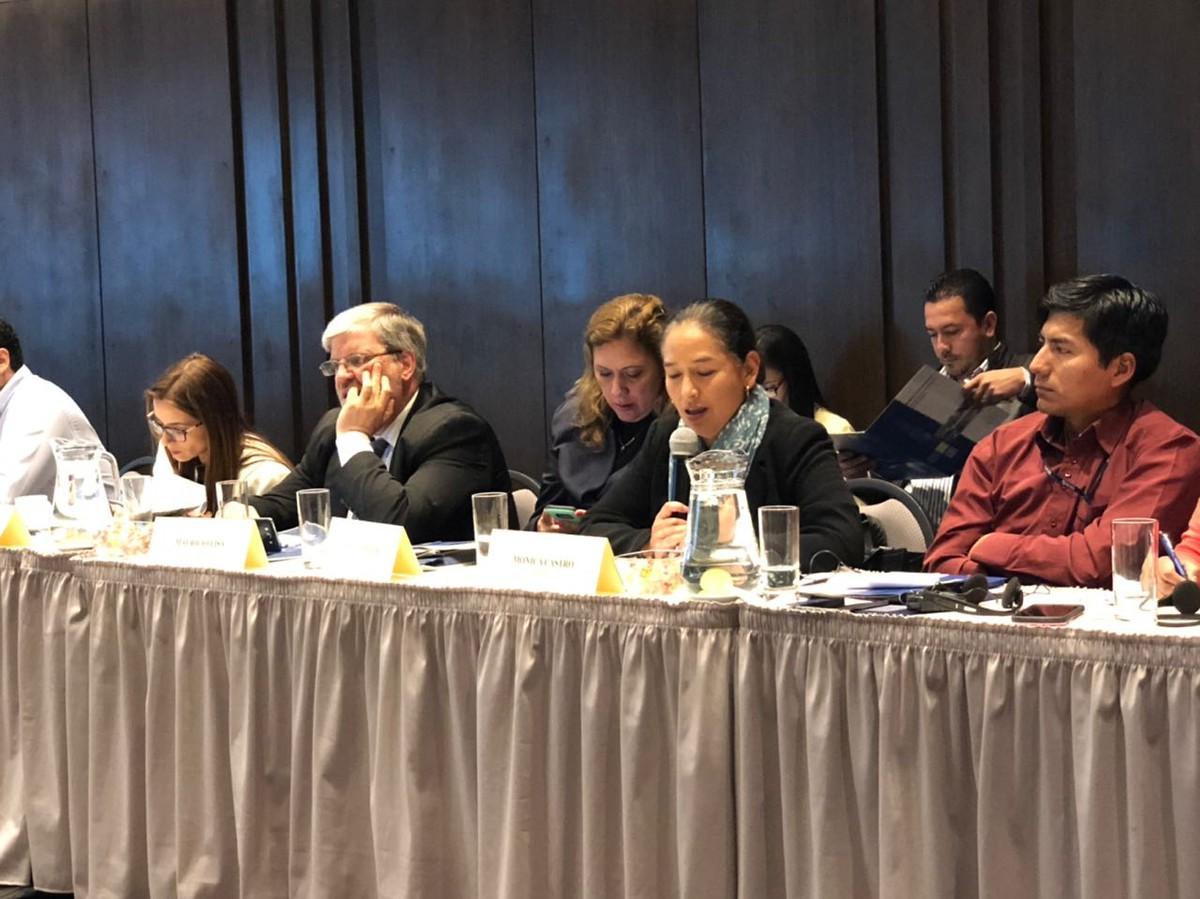Event reports
The energy transition in Germany has altered the sustainable demand for energy raw materials from abroad. Lithium, tin and other raw materials will be or already are more important than oil and gas for the German energy security.
Latin America is a region abundant in these resources and has become a key partner for the German energy transition. Therefore, economic cooperation and development that prioritize the mutual benefits of the parties involved, is in the foreground of the work coordinated by the KAS and was the theme of a workshop focusing on the "Lithium Value Chain" organized in La Paz, Bolivia.
Located in the department of Potosí, Bolivia, Uyuni Salt Flats or "Salar de Uyuni" is considered the largest artificial salt lake in the world and, at the same time, has the largest deposits of lithium in the country. It is estimated that of the ten billion tons of salt that contains the salar, approximately five million are equivalent to Lithium. The mineral has an electrochemical potential, so lithium is used to store energy. In the future, this raw material will be required in greater proportions to advance the electric vehicle industry.
Engineer Luís Alberto Echazú Alvarado, Vice Minister of High Energy Technologies of Bolivia, gave a keynote Speech on the legal and institutional framework of lithium in the country. According to the Plan of Economic and Social Development and the Constitution, the policy of the Plurinational State of Bolivia is oriented towards the use and industrialization of the entire chain of evaporitic resources of the country. In pursuance of this policy, Bolivia is in the search and management of strategic partners worldwide to implement its industrialization plans.
On behalf of Germany, Dr. Hubertus Bardt, Managing Director and Head of the Research Department of IW-Köln, spoke about the safety of raw materials for the German energy transition. In addition to explaining the objectives of the current German policy, Bardt commented on the challenges of the electromobility sector and the advances in terms of new technologies.
The event was then divided into two discussion panels, the first focused on German-Bolivian cooperation on raw materials relevant to the energy transition, and the second extended the approach to a European-Latin American dialogue for business development in the sector of lithium. The full programme is available below.
The event was also supported by the European Union, the German Embassy in La Paz, the Cologne Institute for Economic Research, the German International Cooperation Agency (GIZ), the German-Bolivian Chamber of Commerce and Industry (AHK) and the Konrad Adenauer Foundation in Bolivia.
Programme
Wednesday, December 6, 2017
- 08.00 h Registration
- 09.00 h Welcome Words
- Dr. Christian Hübner, Head of EKLA-KAS
- León de la Torre Krais, Head of the Delegation of the European Union in Bolivia
- Matthias Sonn, German Ambassador in La Paz
- 09.15 h Raw materials in Bolivia for the German energy transition: Lithium and co.
- Luís Alberto Echazú Alvarado, Deputy Minister of High Energy Technologies of Bolivia
- 09.45 h The safety of raw materials for the German energy transition
- Dr. Hubertus Bardt, IW-Köln, Germany
- 10:15 h (I) Panel: Perspectives for the German-Bolivian cooperation on raw materials relevant to the energy transition
- Juan Carlos Montenegro, Manager of the state company Bolivian Lithium Deposit (YLB)
- Michael Mechlinski, Renewable Energy and Lithium Consultant, GIZ
- Carlos Peláez Gauthmon, General Manager of Brücken Consult GmbH
- Carlos Delius, Kaiser, Bolivian entreprise
- Carlos Alberto Echazú, Economist and Lawyer in Extractive Industries and Regulation
- Moderator: Iván Velasquez, KAS Bolivia
- 11.45 h Pause/Coffee
- 12.00 h (II) Panel: European-Latin American political dialogue for business development in the lithium sector
- Mónica Castro, Global Consultant in Sustainable Development, Bolivia
- Mauricio Lisa, Civil Association of Popular Studies, ACEP, Argentina
- Carolina Ferreira, Lithium Advisor, Ministry of Mining of Chile
- Dr. Hubertus Bardt, IW-Köln, Germany
- Moderator: Karina Marzano, EKLA-KAS



